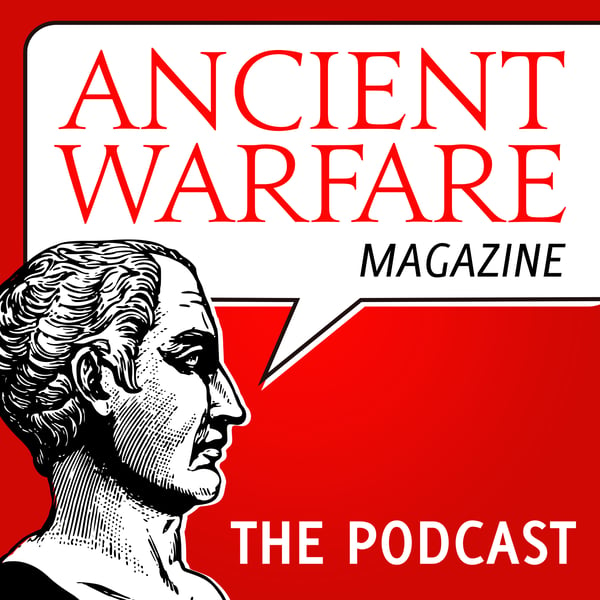The Assyrian Army At War
Ancient Warfare Podcast
The History Network
4.4 • 631 Ratings
🗓️ 9 March 2012
⏱️ 41 minutes
🧾️ Download transcript
Summary
Jasper, Lindsay and Michael are joined by Mark Schwartz.
Dur: 43minTranscript
Click on a timestamp to play from that location
| 0:00.0 | Welcome to the Ancient Warfare Magazine podcast produced by the History Network. If you have any |
| 0:06.4 | comments or ideas, email editor at ancient-warfare.com. And for other discussions, check out the |
| 0:15.4 | ancient warfare forum, which you can find a link to at www.w.com. |
| 0:23.9 | You can also find all the History Network podcasts by going to www.thehistorynetwork.org. |
| 0:32.6 | Hi everyone. We're back with an Ancient Warfare magazine podcast. This time we're dealing with |
| 0:37.1 | Ancient Warfare Magazine issue 5-4 about the Assyrians. |
| 0:42.2 | With me today are Michael Taylor and Lindsay Powell, as always. |
| 0:46.1 | And our special guest is Mark Schwartz, who has an introduction to this issue. |
| 0:52.0 | Michael, I believe you wrote an intro for the podcast today. Is that right? |
| 0:57.8 | Indeed it is. The name of Syria and Assyrian Empire comes from the city-state of Asr or Asher in northern Mesopotamia along the Tigris River. |
| 1:08.0 | When we talk about the Assyrian Empire, we are usually referring to the |
| 1:12.4 | Neo-Assyrian Empire, which flourished from 930 BC to around 630 BC, by which point it was in its |
| 1:20.7 | death throes. The previous periods of Assyrian history are referred to as the old and middle |
| 1:26.9 | Assyrian periods. At various to as the old and middle Assyrian periods. |
| 1:28.9 | At various points during the old and middle periods, Assyria did control a modest empire in northern Mesopotamia, |
| 1:36.3 | but at other times it was also subjugated by other outside groups. |
| 1:42.1 | The Neo-Assyrian Empire, however, at its peak stretched from Egypt to Babylon, |
| 1:47.4 | to Syria, to Medea, and other parts of Anatolia, a huge swath of the Near East. It was the |
| 1:54.3 | first great Iron Age Empire, and the new technology of producing cheap, viciously sharp iron |
| 1:59.4 | weapons is oftentimes seen as a key to its |
| 2:03.1 | success. The Assyrians maintained large infantry forces, described in an article by Nick |
| 2:08.7 | Secunda, oftentimes depicted as fighting in pairs with an archer supported by a shield-bearer. |
... |
Please login to see the full transcript.
Disclaimer: The podcast and artwork embedded on this page are from The History Network, and are the property of its owner and not affiliated with or endorsed by Tapesearch.
Generated transcripts are the property of The History Network and are distributed freely under the Fair Use doctrine. Transcripts generated by Tapesearch are not guaranteed to be accurate.
Copyright © Tapesearch 2025.

